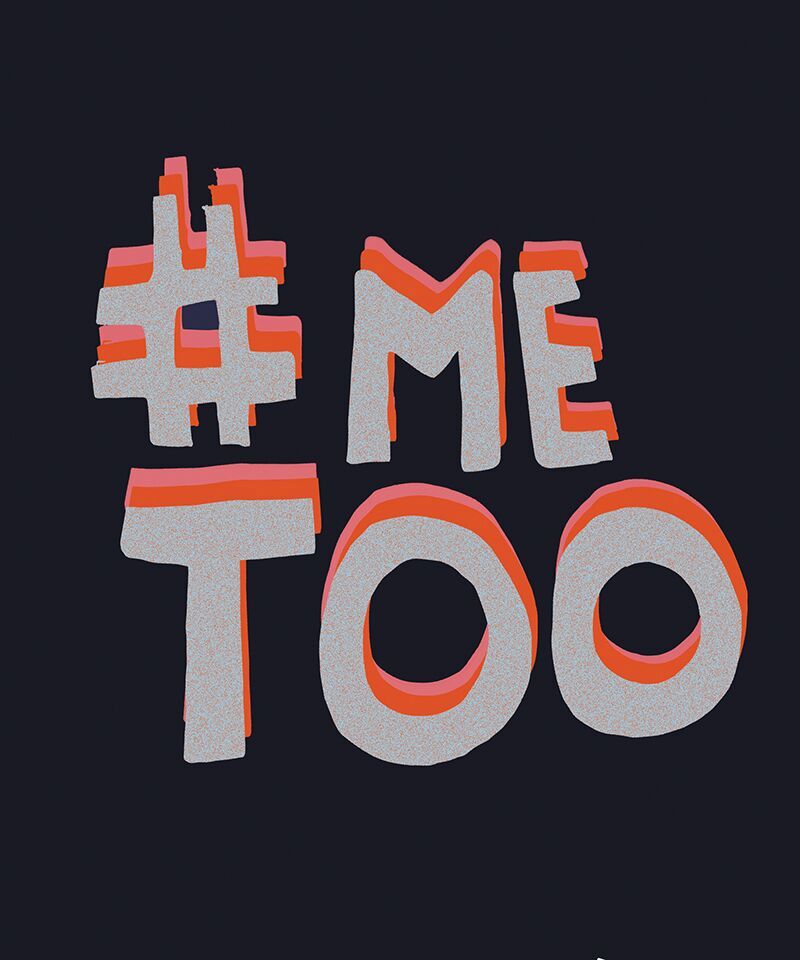Celebrities called out during #MeToo movement can’t make quick comebacks
Comedian Louis C.K. made an appearance on Aug. 26 at a New York comedy club with a 15-minute surprise set. This happened only nine months after he admitted to non-consensually masturbating in front of five women, as well as committing other sexual indecencies.
C.K.’s reappearance has struck a conversation surrounding the #MeToo movement and the countless male public figures who have been accused of sexual misconduct. The #MeToo movement is attempting to normalize the idea of listening to and believing women, in revolutionary and unprecedented ways.
In my opinion, if we accept C.K.’s surprise return, we are sending the message that he was merely in a “timeout.” A successful return would enforce the idea that C.K.’s position holds more importance than the women whose lives he permanently affected.
Don’t get me wrong—this has been a hard year for fallen heros. Some of these public figures had a strong presence in our lives. We were attached to these celebrities, and we held many of them very close to our hearts. That being said, being frustrated and disappointed by the changing perception of powerful male figures does not mean we should lose sight of what we are fighting for. Women didn’t ruin Louis C.K. for us—he ruined himself.
C.K.’s surprise comeback strategy is all too congruent with his disregard for consent. His forceful reappearance reinforced his perception of power. Any woman sitting in that comedy club, who listened to his set, heard him tell rape jokes and saw the standing ovation, was hit by a brick wall of evidence that C.K.’s career and reputation mean more to our society than a woman’s safety, experience, feelings, and agency. And he didn’t give them a choice.
Nine months ago, C.K. publicly admitted to his behaviour, while acknowledging his power and influence as a public figure in the comedy community. According to The New York Times, in C.K.’s apology, he said, “I also took advantage of the fact that I was widely admired in my and their community.” If his apology held any ounce of integrity, then his return to comedy and his return as a public figure should have been approached with self-awareness and remorse. Instead, C.K. resorted to showing up unannounced, resuming his regular comedy shtick and making a rape joke. Classy.
Comedian Paul F. Tompkins was at the comedy club when C.K. performed. After the set, he told The New York Times that C.K. “made a career out of embracing the uncomfortable. Suddenly this is beyond his powers to tackle? Where is the evidence that he cares at all to redeem himself? That he understands what he did was wrong? That he has learned anything? That he has tried to pay for his abuses with more than an enforced vacation?”
As a society, we are still wrestling with the repercussions of C.K.’s behaviour as well as the many other allegations against countless men. Where do these men go from here? We may not have a direct answer yet, but we can assure you, Louis C.K., this was not it.
C.K. finished his original apology by saying, “I have spent my long and lucky career talking and saying anything I want. I will now step back and take a long time to listen.” Who knew that “a long time” actually meant just nine months? There are many public figures stepping up and handling this social climate with grace and bravery, and for once, those are the voices we need to be listening to. We must remember that this movement is about women and the survivors of sexual assault.
Writer and comedian Hannah Gadsby may have said it best: “These men control our stories, and yet, they have a diminishing connection to their own humanity, and we don’t seem to mind so long as they get to hold onto their precious reputation.” C.K. has no right to reclaim his reputation after his disgraceful behaviour. So if anyone is ready to listen and laugh along with Louis C.K. today, they need some serious introspection.
Graphic by Wednesday Laplante




